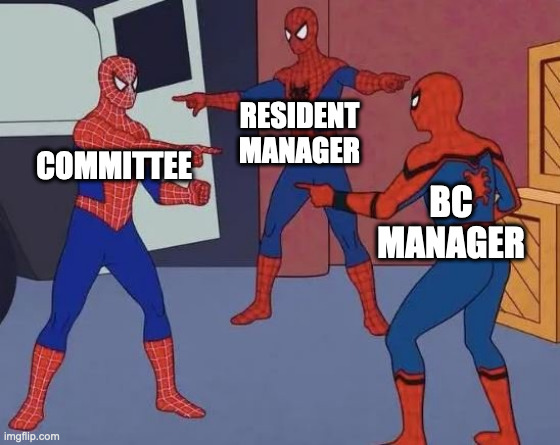
The legendary spaghetti western The Good, The Bad and the Ugly came out almost 60 years ago, and while the movie is now a relic of old Hollywood, its name lives on in strataland.
By-laws fall neatly into each of those three basic categories: good, bad or ugly.
Body corporate committees exist under the illusion of choice. Many committee members are happy to assume that because a motion is passed by special resolution that it goes into the scheme by-laws and remains there as the law of their little part of strataland.
However, just because a by-law has been adopted does not mean it is enforceable.
Section 180 of the Body Corporate and Community Management Act sets out quite clearly the limitations that exist in legislation over what a by-law can achieve. And this is where many a body corporate has come a cropper.
A good by-law should be regulatory and not prohibitory. In other words, a body corporate committee should not (and in fact cannot) set out to outright ban or prohibit certain activities. Rather, it should structure its by-laws to allow flexibility for the committee to tailor outcomes consistent with individual circumstances. Otherwise, the committee risks breaching Section 180 of the Act.
For example, a committee should avoid a by-law that outright bans the renovations of lots in a scheme. Instead, the by-law should include provision for an application process and the committee to set reasonable conditions relating to the particular application. Those conditions could form part of an ongoing policy document, that grows and evolves over time.
By driving approvals to the committee, it avoids the need to define conditions to the nth degree. And it also avoids uncomfortable conversations with the Commissioner’s Office should someone object.
The old saying goes that ignorance of the law is no excuse. But it certainly does explain a lot of the problems that body corporate committees face when they don’t have a solid understanding of the legislation.
Most bad by-laws exist not because of malice on the lot holders’ behalf, but from people acting unknowingly in the circumstances.
For many years, people thought it was possible to ban pets from buildings, despite the interpretation of the legislation being very well settled (but admittedly opaque) that this was not possible. Plenty of bad by-laws were adopted on that incorrect understanding, and every one of them was unenforceable.
The same goes for a by-law trying to limit the types of tenancy in a building – this is a clear breach of Section 180 of the Act. The use of residential lots for residential purposes (be that short or long stay) is one for the town planners, not a body corporate committee.
There is only one word to describe a body corporate committee that knows it has a bad by-law on the books but charges on regardless trying to enforce it: Ugly. Proceeding to expensive and time-consuming legal action to defend the indefensible is never going to stand up with the Commissioner’s Office or the courts.
This isn’t frontier justice. The Commissioner has more than 25 years of adjudications and precedents that cover almost every aspect of strata law. An ugly defence is never going to succeed.
Serving on a body corporate committee can often feel like staring down an angry mob outside the sheriff’s office. Lot owners can point to a CMS and demand to know why a certain by-law isn’t being enforced, even if that by-law is invalid.
It’s a whole lot easier to appease the mob if the CMS is kept clean and every by-law in there is enforceable.
Spoiler alert: In the movie, Clint Eastwood (the good) prevails over Lee Van Cleef (the bad) and Eli Wallach (the ugly). In the wild west of strataland, try to be like Clint.


